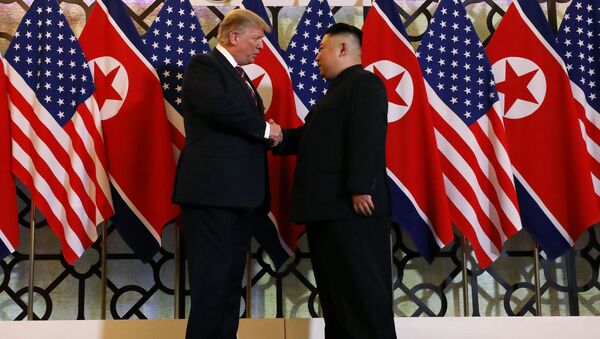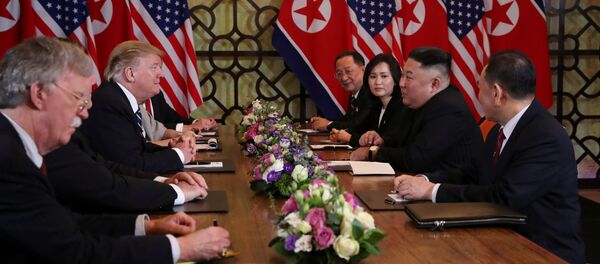Earlier talks in Hanoi between President Donald Trump and North Korean leader Kim Jong Un fell apart after Pyongyang asked for full sanctions relief before denuclearization.
"By engaging in diplomacy and having more summits with US leaders, North Korea probably hopes to achieve what the Ayatollahs in Tehran could not — be treated as a ‘normal country’ whose government can be trusted as the reliable steward of a deadly nuclear arsenal," Schirach said on Thursday. "North Korea’s subsequent goal will be to be accepted as a ‘responsible’ nuclear state willing to play by the rules, just like India or Pakistan."
Schirach said he believed US policymakers continued to fail to understand what North Korea’s true goals were in developing and maintaining its own nuclear deterrent.
READ MORE: US-North Korea Summit: 'The Denuclearisation Process is Still Far Away' – Prof
Kim’s diplomatic aims, while difficult to achieve, were not of themselves impossible or extreme ones, Schirach emphasized, given enough time and more negotiations.
"I am not surprised that the Hanoi summit failed to produce any concrete results… What all these possible roadmaps have in common is that they assume a genuine will on the part of North Korea to eventually de-nuclearize, if only in exchange for a good package of aid [and] investments," he said. "I seriously question this premise. I am not at all convinced that North Korea has any intention to completely give up its relatively mature nuclear weapons program — under any condition."
"If the country truly opens up, the regime will be unable to control the people. If that happens, Kim is out of a job," he said.
Schirach expressed hope that the negotiations process with Pyongyang would continue and make some progress, but he cautioned against unrealistic expectations for it.
Schirach is also Global Policy Institute President and Chair of the International Relations Program at Bay Atlantic University.
READ MORE: EU Stresses Importance of Promoting Peace Process on Korean Peninsula
In 2017, China and Russia put forward the so-called double freeze plan, under which North Korea would be obliged to cease its nuclear activities in exchange for the suspension of US-South Korean joint military exercises near the peninsula.
Moscow also suggested that the parties concerned should develop a roadmap for the restoration of trust and the resumption of six-party talks on North Korea, involving Beijing, Moscow, Pyongyang, Seoul, Tokyo and Washington.




